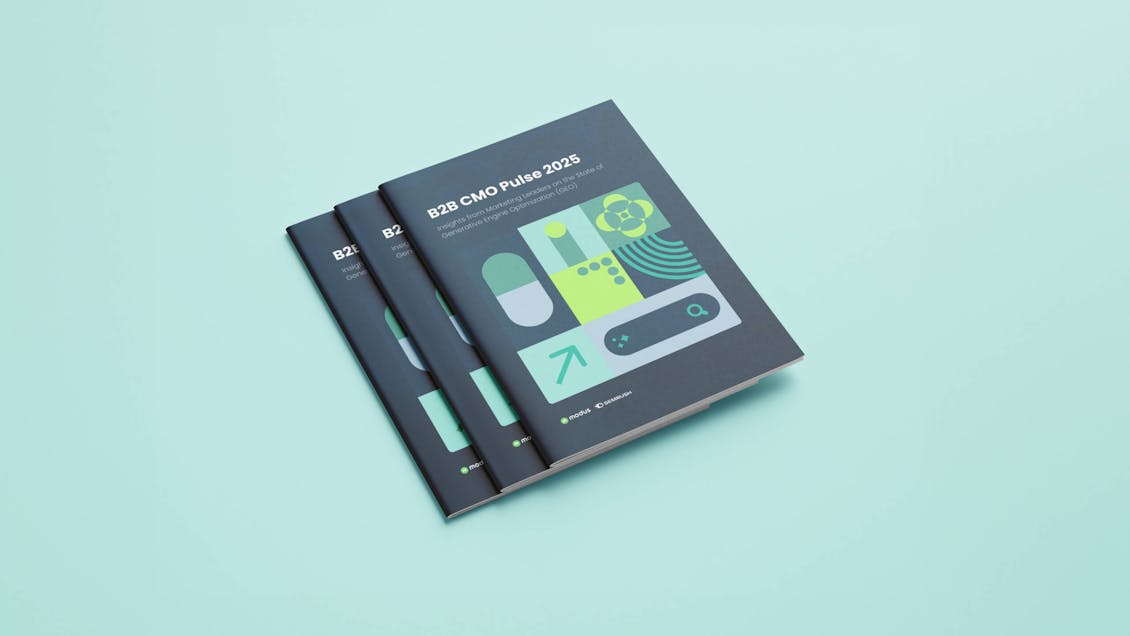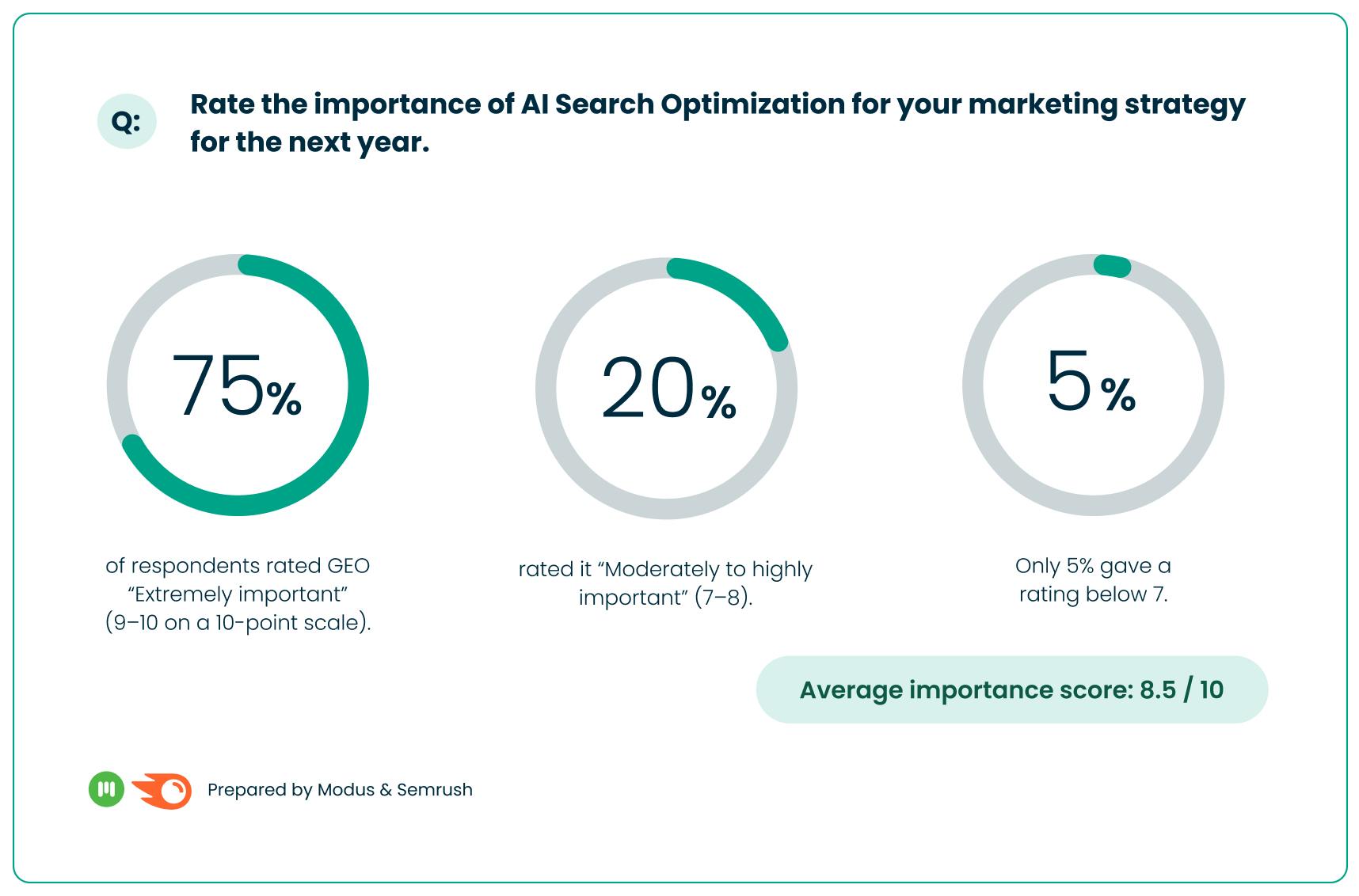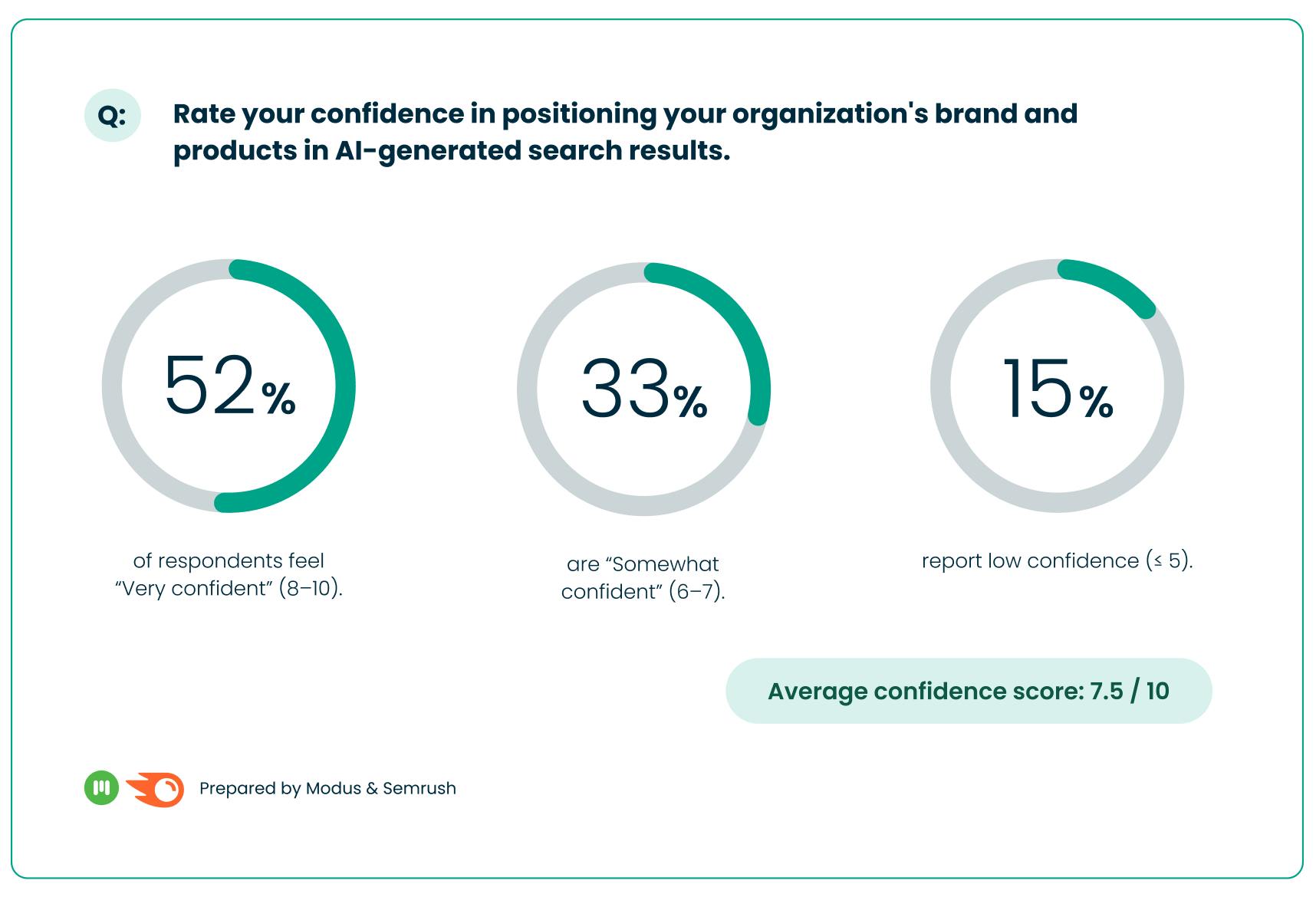New survey: How marketers feel about GEO

Findings from our B2B CMO Pulse are available now
Marketers have a new acronym to contend with: GEO (Generative Engine Optimization). As they adapt to the emerging practice of optimizing brands for AI search results, they’re building new playbooks in real-time. And nearly half of marketing leaders admit they’re flying blind when it comes to proving performance impact.
Today, Modus unveiled findings from its B2B CMO Pulse 2025: The State of Generative Engine Optimization (GEO), conducted in partnership with Semrush, the leading online visibility management SaaS platform. The results unpack how senior marketers are preparing for AI-driven search — and why many still lack confidence about measuring success.
In October of 2025, Modus and our partners at Semrush surveyed 70+ global marketing leaders across B2B Professional Services, Technology, Financial Services, and Manufacturing industries to develop a clear understanding of how leaders are adapting to Generative Engine Optimization (GEO), or AI search. The data we collected points to a substantial strategic gap: GEO has become a strategic priority, but not yet an operational strength.

Key highlights include:
- CMOs recognize GEO as a non-negotiable strategic pillar — 85% of respondents rate AI Search Optimization as a top strategic priority for the next 12 months (average rating 8.5/10). Yet, they feel notably less confident in their ability to execute it and measure success. Average confidence in GEO strategy is 7.5/10, though only half feel “very confident.”

- Nearly half (46%) cite unclear KPIs and measurement gaps as their biggest challenge in adapting from SEO to AI-driven search. This sentiment underscores the biggest challenge for enterprise marketing executives — the opacity of AI ranking factors and the difficulty in establishing clear metrics and visibility to measure ROI.
- Also unclear is which terminology to use — confusion signals market nascency. “GEO” is most commonly used (34% of respondents), but others prefer “AIO,” “AEO,” or “AI Search Optimization.”
- Analysis of short-term initiatives and peer advice points to a shared mindset. Marketers are moving from “keyword-first” to “answer-first” thinking. Many referenced a two-pronged approach for success, starting with a fundamental technical cleanup before moving into content strategy. This advice is echoed across the responses, suggesting that the path to GEO success must first address the architecture of the content before optimizing the content itself.
- The executives anticipate that GEO will not merely augment, but fundamentally change, traditional SEO by shifting focus away from "10 blue links" to conversational, direct answers. The general consensus is that as search results become more AI-generated and summarized, traditional organic traffic to low-value pages will decline, forcing brands to compete fiercely for the direct, authoritative answers provided by the AI. This means content that aligns with genuine customer intent and demonstrates authority will be the most resilient across all search engines.
As CMOs ask, “How can we ensure our brands show up (favorably) in AI search results?,”
this findings report reveals not a lack of ambition, but a gap in readiness. CMOs understand that GEO will define the next decade of digital visibility — yet the tools, metrics, and frameworks needed to operationalize it are still taking shape.
Download the full report to get emerging best practices and tangible next steps to help your marketing team move the needle with AI search results in 2026 and beyond: https://hello.modusdigital.com/b2b-cmo-pulse-2025/
Why get up to speed with GEO now? Bridging the GEO strategic gap will require a new level of cross-functional alignment between marketing, data, and technology teams. The leaders who close it fastest won’t just adapt to AI search — they’ll shape how their brands are understood, cited, and trusted by the algorithms that now define discovery.


